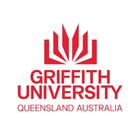Graduate Certificate in Urban and Environmental Planning
- Posted by Griffith University
- Home
- Courses
- Griffith University
- Graduate Certificate in Urban and Environmental Planning
Graduate Certificate in Urban and Environmental Planning
This program addresses planning issues that are central to contemporary planning practice. It broadens and deepens your professional understanding of both practical and theoretical responses to planning challenges in areas that include environmental, development, land use, transport, policy and strategic planning. The program is suitable for para-professionals in planning and…
Categories
COURSE DESCRIPTION
This program addresses planning issues that are central to contemporary planning practice. It broadens and deepens your professional understanding of both practical and theoretical responses to planning challenges in areas that include environmental, development, land use, transport, policy and strategic planning. The program is suitable for para-professionals in planning and allied fields.
My career opportunities
You will be equipped with the knowledge and skills needed to respond to emerging planning and development challenges. You’ll sharpen your ability to evaluate, analyse and create innovative solutions, and communicate them effectively. Graduates build careers in government, the private sector and non-governmental organisations in areas that include planning and urban policy, development preparation and assessment, transport and local area planning, and regional and strategic planning.
Pathways to further study
The Graduate Certificate in Urban and Environmental Planning provides a pathway to the Master of Urban and Environmental Planning (5576).
REQUIREMENTS
To be eligible for admission to the Graduate Certificate in Urban and Environmental Planning, a student must:
- hold a Bachelor degree from a recognised University (or another tertiary education institution of equivalent standing). Planning related Bachelor degrees will be assessed by the Program Director to determine whether the degree is appropriate for admission
- OR have a minimum of five years equivalent full-time relevant work experience.
The minimum English language requirements for such applicants for entry to this program are as follows:
- A minimum overall band score of 6.5 on IELTS (Academic) with no sub-score of less than 6.0
- OR a minimum score of 575 on TOEFL
- OR an internet-based (iBT) TOEFL score of 79 (no sub-score less than 19)
- OR no score less than 3+ in each skill of the ISLPR (conducted by ISLPR Language Services only)
- OR a minimum overall score of 176 (no score less than 169) on C1 Advanced (formerly Cambridge Certificate in Advanced English) or C2 Proficiency (formerly Cambridge Certificate of Proficiency in English)
- OR an overall score of 58 in the Pearson Test of English (Academic) with no score less than 50.
EDUCATIONAL INSTITUTION
Griffith University is ranked in the top 2% of universities worldwide and strives to create a brighter future for all by prioritising innovation and social impact. We are committed to providing international students with quality education, guidance, and support. With Australia’s most awarded teachers, Griffith University offers a full suite of undergraduate, postgraduate and research degrees in areas including architecture, construction, and planning; business and government; criminology and law; education; engineering, IT and aviation; humanities, languages and social science; medicine, dentistry and health; music and performing arts; science and environment; visual and creative arts.
Griffith University is ranked in the top 2% of universities worldwide and strives to create a brighter future for all by prioritising innovation and social impact. We are committed to providing international students with quality education, guidance, and support.
With Australia’s most awarded teachers, Griffith University offers a full suite of undergraduate, postgraduate and research degrees in areas including architecture, construction, and planning; business and government; criminology and law; education; engineering, IT and aviation; humanities, languages and social science; medicine, dentistry and health; music and performing arts; science and environment; visual and creative arts.




